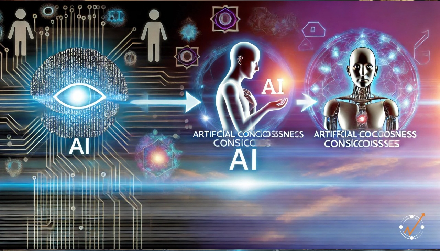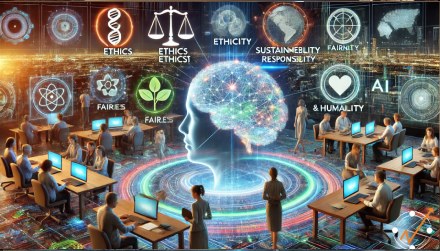AI in Education: Developing Ethical AI to create a more inclusive Learning Environment
By Manoj Gupta, Founder
Artificial intelligence (AI) is reshaping industries across the globe, and the education sector is no exception.
AI offers the potential to transform traditional educational models, personalising learning experiences, increasing accessibility, and helping students realise their full potential.
Having said so, adherence to ethical standards will be the most critical factor in the education sector, given that it will be dealing with the data of formative brains…!
AI and Personalised Learning
One of the most promising applications of Artificial Intelligence in education is its ability to deliver personalised learning experiences. This kind of adaptive learning, where AI algorithms can analyse student performance, learning styles, and areas of improvement to tailor content and provide individualised recommendations.
Some of the players who have already taken strides in this direction are worth mentioning:
DreamBox Learning, a platform with an AI-driven math education tool that adjusts lesson difficulty based on student responses, allowing learners to progress at their own pace.
Carnegie Learning uses AI to provide real-time feedback and personalised learning pathways for students.
This form of AI-driven education ensures that each student receives the attention and resources they need to succeed, helping to level the playing field, particularly for those who might otherwise fall behind in traditional classroom settings.
Having said so, while AI has the potential to provide personalised education, the question arises as to how to ensure that it does not entrench disparities in access and quality…?
One of the major challenges in education today is the digital divide - unequal access to technology and internet connectivity. As AI-based tools become more prominent in the future, the students from underprivileged backgrounds may be at risk of being left behind.
Ethical Concerns: Privacy, Bias, and Accountability
As with any use of AI, there are significant ethical concerns that must be addressed to ensure AI in education promotes inclusion and fairness.
Data privacy: this is one of the primary concerns. AI-driven learning tools collect vast amounts of data on students, including their learning patterns, behaviour, and performance.
Bias: Another ethical issue is bias. AI systems, if not properly monitored, can perpetuate biases, especially when algorithms are trained on biased datasets.
Accountability: Last but not least, there’s the question of accountability. Who is responsible when an AI system makes an incorrect or biased recommendation that affects a student's academic trajectory?
Thus, as AI becomes more integral to education, it is vital to adopt rigorous data privacy standards. This data is valuable, and it is paramount to focus on its storage and usage.
Transparency, traceability, and accountability in AI will be key!
Summing Up…
Conscious AI will play a critical role in shaping the future of education, and by aligning innovation with ethics, we can create a system that is inclusive, accessible, and beneficial for all students.
It has the potential to revolutionise education, creating personalised inclusive learning environments and opening doors to students who have historically been underserved.
To build ethical AI for education, we need leadership that prioritises equity, transparency, and fairness.
Consciouspreneur® will play a major role in this space…!


